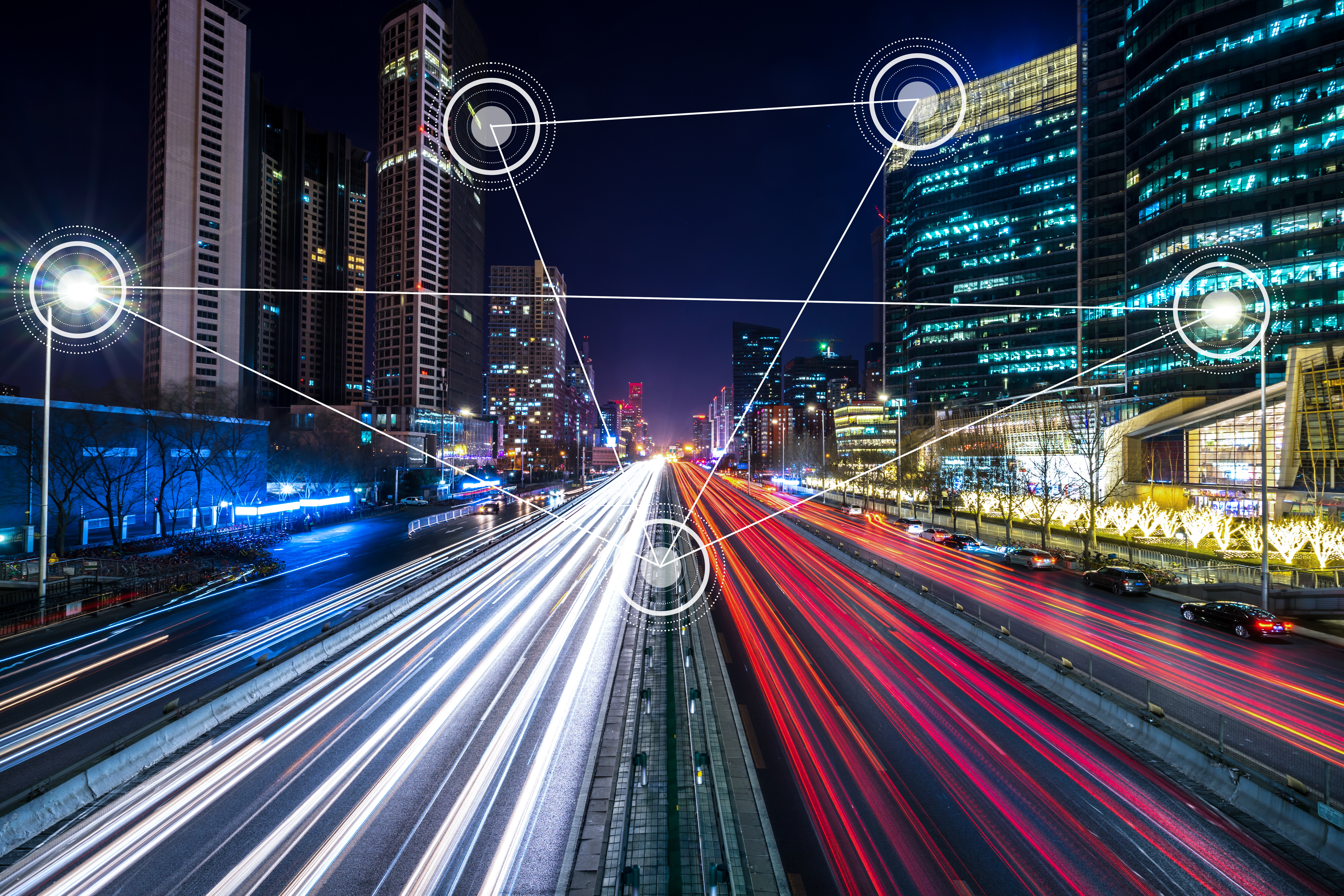Demographic trends point to an increasingly urban world. Achieving efficient use of resources and services, safety, affordability, and a higher quality of life have become data-based endeavors. Transportation, access to basic amenities, emergency services, energy efficiency, and resilience to natural hazards are important aspects of urban planning that are informed by big data. Much of the work involves the collection and integration of population-level data on infrastructure and behaviors and the subsequent development of complex simulation models to guide decision-making. Other areas of interest include food deserts, the spread of disease, natural hazards, urban-rural co-dependent systems, and plant and wildlife conservation.
Internet of Things Solutions for Smart and Connected Cities
The Internet of Things (sensors and devices connected by networks to computing systems) has enormous potential to advance how Smart Cities work. Research on big data and analytics from massive streams of real-time data is being applied to Smart City initiatives. The resulting work can transform cities by improving infrastructure, creating more efficient and cost-effective municipal services, enhancing public transportation, reducing traffic congestion, and keeping citizens safe and more engaged in the community.





